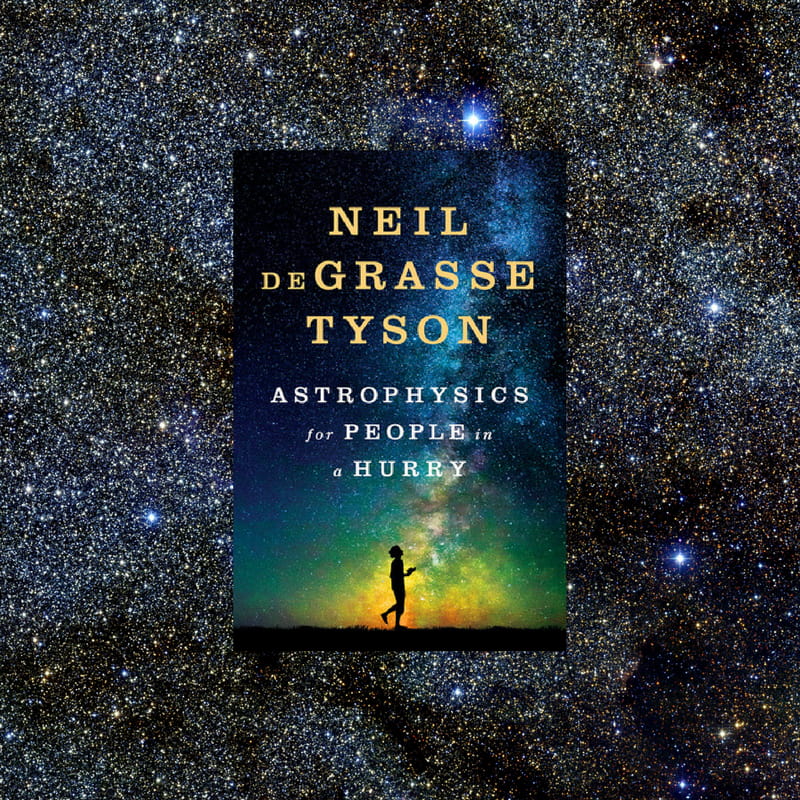This penultimate article in the Basics of Astrophysics series highlights essential reading for anyone interested in this fascinating field. Stemming from a discussion with Bogdan, a renowned science popularizer in Romania, this compilation includes some of the best books on astronomy and astrophysics for a range of readers.
Diverse Paths in Astrophysics Learning
Embarking on the study of astrophysics and astronomy can be daunting. Whether you are a hobbyist seeking to expand your knowledge or an aspiring scientist aiming for a serious pursuit, the right resources are crucial. This guide aims to cater to both categories, recognizing the importance of a solid foundation in the field.
Key Books for General Interest in Astrophysics
For enthusiasts, popular science books such as Stephen Hawking’s “A Brief History of Time” and Carl Sagan’s “Cosmos” offer accessible introductions to complex concepts. Neil deGrasse Tyson’s “Astrophysics for People in a Hurry” and “Welcome to the Universe” also come highly recommended for their engaging and insightful treatments of astrophysics.
Evaluating Astrophysics Books for Different Audiences
Selecting the right book depends on the reader’s goals and existing knowledge. For those new to the field, texts with simplified explanations are ideal. Aspiring scientists should balance popular science reads with more technical texts to build a strong foundation in physics and mathematics.
Essential Physics Background for Astrophysics
A deep understanding of physics is crucial for anyone aiming to grasp the complexities of astrophysics. The study of astronomy cannot be divorced from physics, as the latter provides the essential principles that underpin astrophysical phenomena.
Top Picks in Astrophysics Literature
- “An Introduction to the Study of Stellar Structure” by S. Chandrasekhar offers advanced insights into stellar astrophysics;
- “Astrophysical Concepts” by Martin Harwit is an excellent choice for those seeking to understand the physics behind astrophysical concepts.
The
- “Theoretical Astrophysics” series by T. Padmanabhan provides a comprehensive exploration of basic to advanced topics in astrophysics.
Comprehensive List of Top Astrophysics Books
| Book Title | Author(s) | Main Focus | Target Audience | Key Features |
|---|---|---|---|---|
| Fundamental Astronomy | Hannu Kartunen, Pekka Kroger | Comprehensive overview of astronomy and astrophysics | Beginners, Students | Covers all branches with clear explanations |
| An Introduction to Astrophysics | Baidyanath Basu | Basics of astrophysics and outer space physics | Aspiring Scientists, Students | Starts with fundamental concepts, gradually advances to complex topics |
| Schaum’s Outline on Astronomy | Stacey Palen | Introduction to astronomy and astrophysics | Beginners, Hobbyists | Simplified explanations, minimal equations |
| An Introduction to the Study of Stellar Structure | S. Chandrasekhar | Advanced stellar astrophysics | Advanced Students, Researchers | Detailed coverage of stellar evolution, written by a Nobel Laureate |
| Astrophysical Concepts | Martin Harwit | Physics in astrophysics | Intermediate Learners, Enthusiasts | Blends astrophysics with relevant physics topics |
| Theoretical Astrophysics (Series) | T. Padmanabhan | Comprehensive astrophysics series | Advanced Students, Researchers | Three-volume series covering basic to complex astrophysical concepts |
In-Depth Analysis: Astrophysics and Its Pioneers
This section delves into the historical and scientific context of astrophysics, highlighting the monumental contributions of its pioneers. It explores the groundbreaking work of figures like Albert Einstein, Stephen Hawking, and Carl Sagan, illustrating how their theories and ideas reshaped our understanding of the cosmos. Their collective efforts not only advanced scientific knowledge but also inspired a deeper appreciation for the mysteries of the universe. This comprehensive analysis provides readers with a richer understanding of the field’s evolution and the minds that have shaped it.
Exploring Advanced Topics in Astrophysics
Astrophysics is a field that continually pushes the boundaries of our knowledge. In this section, we explore advanced topics such as black hole physics, cosmic microwave background radiation, and dark matter. These areas represent the cutting edge of astrophysical research, offering glimpses into the most profound questions about the universe’s origin, structure, and fate. This exploration aims to provide readers with an understanding of the current challenges and exciting discoveries shaping the future of astrophysics.
Video Guide
To answer all your questions, we have prepared a video for you. Enjoy watching it!
Thought by Albert Einstein: Revolutionary Concepts in Astrophysics
Albert Einstein’s groundbreaking theories significantly impacted the field of astrophysics, introducing concepts that would forever change the way we understand the universe. His revolutionary ideas, underpinned by his imaginative approach to science, have become cornerstones of modern physics and astronomy.
- Einstein’s Relativity: Einstein’s theories of Special and General Relativity reshaped traditional concepts of time, space, and gravity. His formulation of E=mc², the mass-energy equivalence, and the bending of light by gravity were transformative;
- Impact on Astrophysics: Einstein’s work had profound implications for astrophysics, influencing our understanding of black holes, the expansion of the universe, and gravitational waves. His predictions laid the groundwork for contemporary research in these areas;
- Philosophical Insights: Beyond his scientific achievements, Einstein’s philosophical views on science, nature, and humanity have inspired both scientists and non-scientists. His thoughts on imagination, curiosity, and the interconnectedness of the universe have enriched the discourse in both science and philosophy;
- Legacy in Astrophysics: Einstein’s legacy in astrophysics is evident in the ongoing research that continues to validate and expand upon his theories. His work remains central to the study of the cosmos, from the behavior of galaxies to the fundamental laws governing the universe.
Through his extraordinary intellect and vision, Albert Einstein not only advanced the field of astrophysics but also left an indelible mark on our collective understanding of the universe.
Conclusion
Whether you are a curious learner or a dedicated future scientist, this selection of astrophysics books offers a gateway into the fascinating world of stars, galaxies, and the universe. From foundational principles to complex theories, these books provide a comprehensive journey through the realm of astrophysics.





